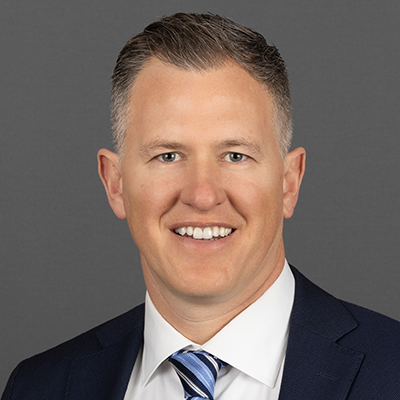INSIGHT: The Homebound IP Lawyer—Ready for Challenges of Remote Work
Intellectual property attorneys are highly skilled at remote work, having the advantage of operating at the intersection of law and technology. Kirkland & Ellis attorneys explore how IP law is changing during the coronavirus pandemic and how IP attorneys will adapt and innovate to ensure the best results for their clients.
Oral arguments at the Federal Circuit in Washington, D.C. Trials in the Eastern District of Texas. Client meetings in Amsterdam. Working on the road is a frequent reality for intellectual property lawyers.
Thus, when the Covid-19 pandemic abruptly forced stay-put and work-from-home, IP lawyers were already well equipped. But not all remote work is created equally.
Indeed, while the very nature of IP work has prepared us for performing most tasks from home, certain aspects of IP litigation present challenges and require adjustments. Reviewing source code on secure, unconnected computers is just one example of a routine task that generally required an in-person visit. Inspections of accused devices and redesigned products present another problem. So do depositions, pretrial hearings, and trials.
Yet even most of these tasks seem technically feasible in the new abnormal. IP lawyers already operated at the intersection of law and technology; so, as the pandemic rages on, we expect the homebound IP lawyer to adapt and innovate to ensure the best results for their clients.
Remote Source Code Review
Modern document review often occurs with ease remotely. Log on to an e-discovery platform, and every document is at your fingertips. But IP lawyers increasingly find themselves in litigation concerning software where review of highly sensitive source code raises challenges.
Even surmounting the serious security questions that arise from modifying the review protocol, such improvised review may directly conflict with a protective order requiring an off-network computer in a secure room within counsel’s office.
IP lawyers confronting this dilemma must consider the availability of alternative review systems and potentially modifying the governing protective order to proceed with discovery. Under these circumstances, the producing party, for example, could supply an unconnected computer to the reviewer equipped with a secure webcam to monitor the reviewer’s environment.
The producing party might instead allow remote, VPN-access to servers storing the source code and require a declaration from reviewers that they did not copy any aspect of the source code otherwise forbidden under the protective order.
Of course, some source code will be so sensitive that certain clients may not be comfortable with any form of remote review. For them, the review, like much of the world, is on pause.
Remote Physical Inspections of Accused Devices and Redesigned Products
Inspecting physical devices and redesigns, whether the patented invention or allegedly infringement product, also presents challenges for the homebound IP lawyer. Like source code, physical embodiments may contain a range of highly sensitive information—consider a complex machine where the patented technology consists of only one small feature. The producing party may not wish to turn over the entire machine for its opponent to freely analyze or reverse engineer.
This is especially true for devices that are not generally publicly available. Pre-pandemic, this type of machine might be available for supervised inspection at counsel’s office or the party’s place of business where an expert could inspect it and take pictures. Now, with travel restrictions, videoconferencing technology may provide an alternative. During a remote inspection, the examining party could request specific views or photos handled by a neutral third party.
That analysis and the corresponding images could then form part of the expert’s report. While some limited set of circumstances might still require an in-person assessment, remote physical inspections will likely suffice in many cases.
Remote Depositions
Depositions have also historically occurred in person. Live witnesses, and the attorneys taking and defending the deposition, typically gather in conference rooms with court reporters and videographers. In complex, multi-party litigation, sometimes these rooms brim with lawyers.
Not any longer, at least in the short term. To keep matters moving, remote depositions can provide a solution. When choosing a vendor to host such depositions, key areas to focus on are: the process for displaying, marking, and preserving exhibits; required equipment and network speeds; number of parties that can participate; real-time feed of the court-reporter’s transcript; ability to record and preserve the deposition; presence of a live technician; and availability of the platform beforehand for preparation, among others.
Additional areas specifically for IP lawyers to focus on may include: the ability to draw or annotate figures displayed in real-time; pre-loading voluminous exhibits; and exhibit size limits or file type restrictions.
Remote Pretrial Hearings and Trials
Perhaps the most uncertain task of the IP lawyer that will remain on hold for the time being: the jury trial. But the majority of pretrial activities may occur remotely. Markman hearings, for example, where the parties argue over the proper definitions of a patent’s claims, tend to involve in-person argument and slide decks to illustrate arguments.
Courts are now hosting such hearings remotely and permit the use of videoconferencing technology to accommodate slide presentations. To avoid technical glitches, of course, IP lawyers could send the deck to chambers beforehand. Most other pretrial issues are amenable to similar suggestions.
As the industry continues to adapt to work-from-home culture, adjustments are unavoidable. Even the IP lawyer, no stranger to working from the road, must adapt. But there is a silver-lining: tasks once thought unimaginable to conduct remotely are not only feasible, they can be effective assets to every IP lawyer’s toolbox.
This column does not necessarily reflect the opinion of The Bureau of National Affairs, Inc. or its owners.
Author Information
Joseph Loy is an intellectual property litigation partner in Kirkland & Ellis’ New York office whose practice focuses primarily on patent and trade secret disputes before trial and appellate courts nationwide.
Kyle Friedland is an intellectual property litigation associate in Kirkland’s New York office whose practice focuses on patent and trade secret disputes.

